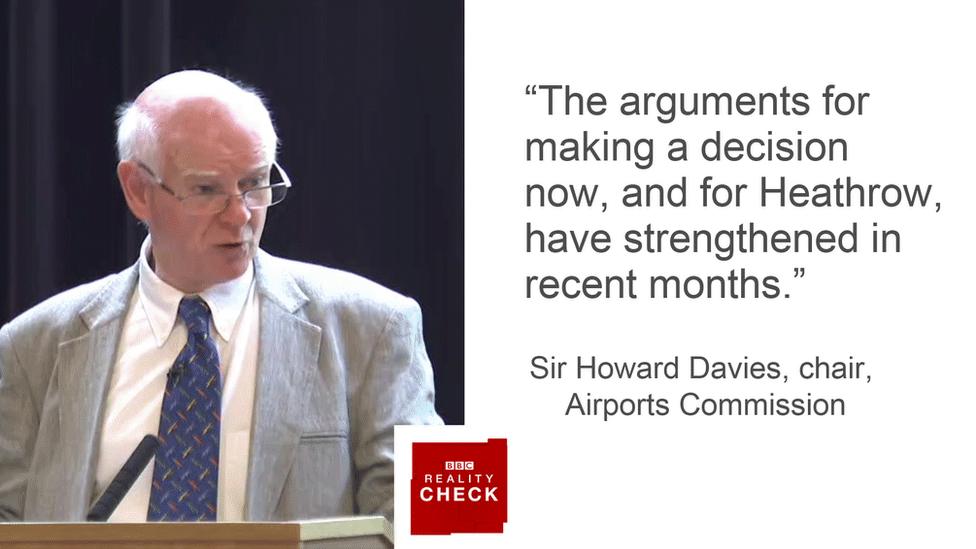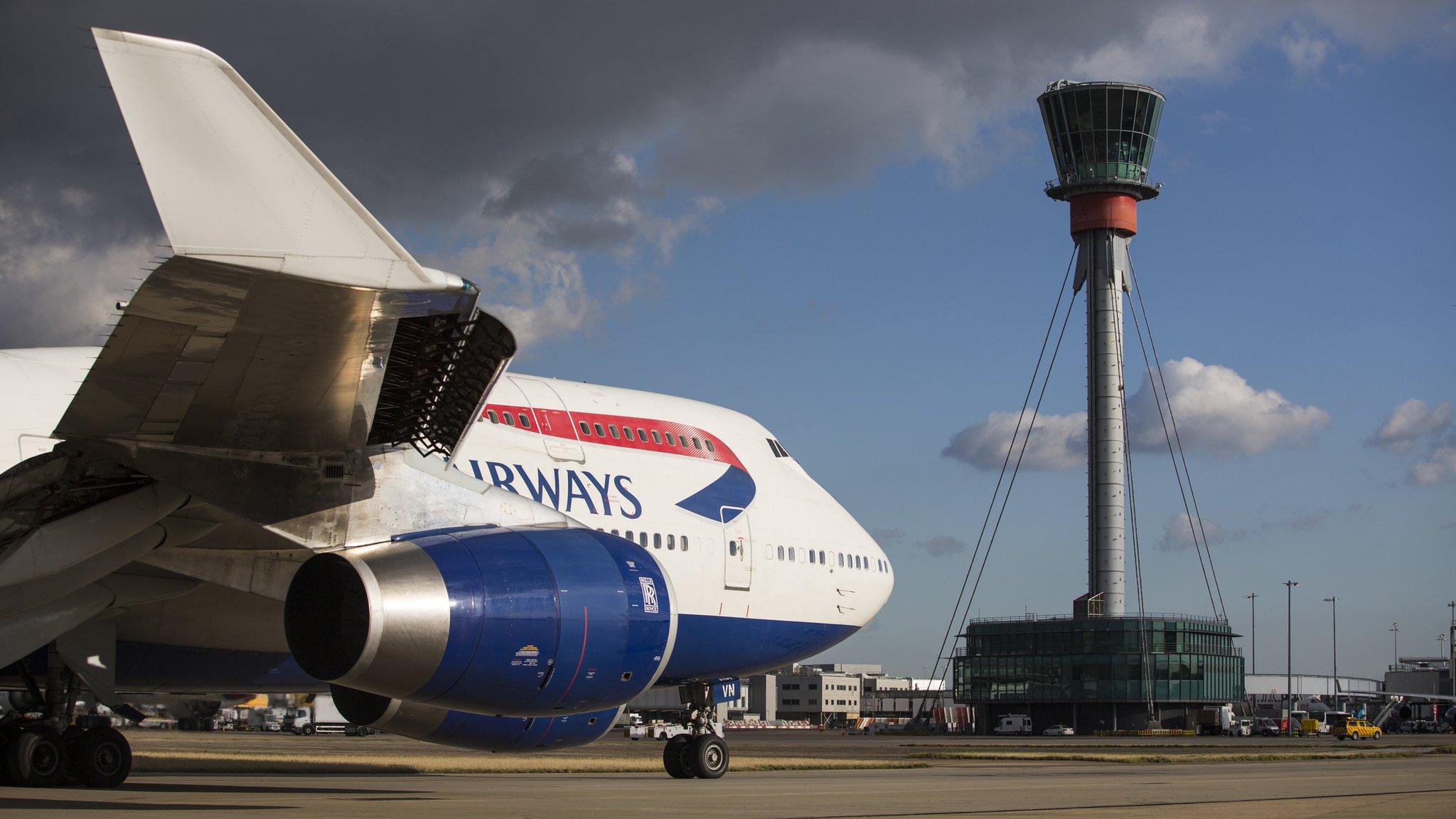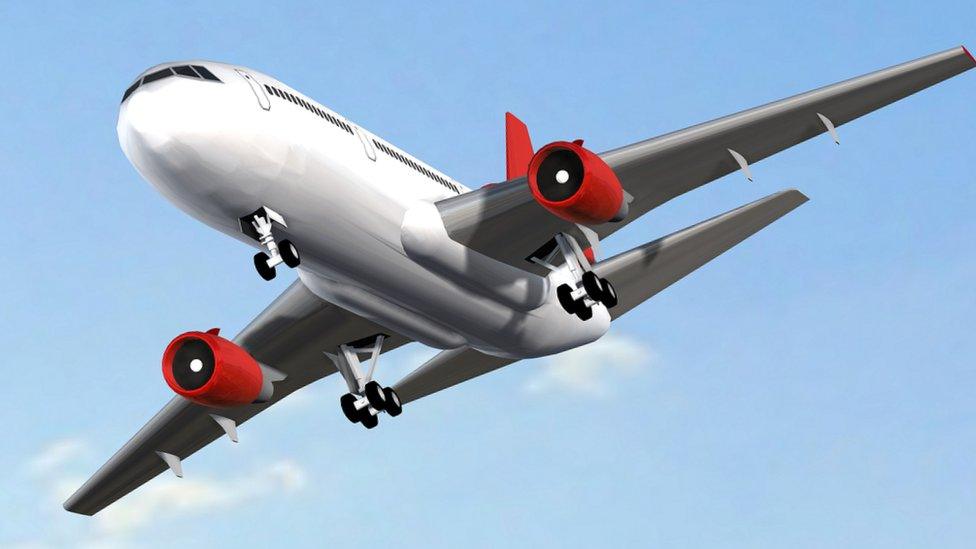Reality Check: Is new runway more important post-Brexit?
- Published

The claim: Having more airport capacity in London and at Heathrow is more important because of the vote to leave the European Union.
Reality check verdict: The Airports Commission report in 2015 already gave high priority to connecting with non-EU countries and emerging economies, so the added importance is largely symbolic.
The government has decided to give the go-ahead to the plans for a third runway at Heathrow.
There have been suggestions in recent weeks that this is a particularly important decision following the vote to leave the European Union.
"It will have symbolic importance even though everyone understands it won't happen in reality until the mid-2020s," Tesco chairman John Allan told BBC News.
But is there anything beyond the symbolic benefits of declaring that Britain is still open for business?
After all, talk of a third runway at Heathrow started long before the referendum campaign.
Writing in the Telegraph, external, Sir Howard Davies, who chaired the Airports Commission that recommended Heathrow as the location for extra capacity, said: "The arguments for making a decision now, and for Heathrow, have strengthened in recent months."
"The need for a clear strategic direction is more important since the referendum result."
One of the key challenges facing the economy after Brexit is the balance of payments - the country imports considerably more stuff than it exports.
Sir Howard points out that Gatwick is oriented towards outbound tourist traffic, because "relatively few residents of Marbella and Corfu come here for their summer break".
He compares this with Heathrow where the tourist traffic is mainly inbound.
Leaving the European Union is supposed to help the UK trade more with countries outside Europe, especially the emerging economies that the Airports Commission report, external identified as the key areas of growing demand for airport capacity, both with passengers and freight.
One of the points of having major hubs is that having passengers changing flights helps to make more services cost-effective.
"Without transfer passengers making a financial contribution to the cost of flights to or from the hub (probably about one third of passengers) a whole raft of air services would become uneconomic for the airlines and you end up with significantly reduced services (and higher prices) for other, non-connecting passengers," Peter Morris chief economist at the Flight Ascend consultancy told BBC News.
But that would also have been the case before the EU Referendum.
The Airports Commission report in 2015 predicted the relative decline of Europe as a destination for passengers and freight, with stronger growth expected in destinations such as Asia and the Middle East.
Sir Howard Davies concluded: "Overseas, the lack of a decision is seen as a symbol of Britain's inability to decide on its future as a trading nation."
"That may well be to overstate the case, but it is the way overseas businesses and governments view it."
So it is important to take a decision in order to demonstrate that the country is capable of taking decisions, and not because the assumptions have changed to any great extent since the vote to leave the EU.



- Published26 October 2016

- Published25 October 2016

- Published25 October 2016
